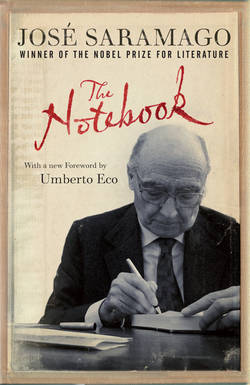Читать книгу The Notebook - José Saramago - Страница 30
На сайте Литреса книга снята с продажи.
October 14: Jorge Amado
ОглавлениеFor many years Jorge Amado wanted to be, and knew how to be, the voice, meaning, and joy of Brazil. It is not often that a writer manages to become as much the mirror and portrait of an entire people as he was. A significant part of the reading world outside the country started learning about Brazil when they started reading Jorge Amado. And many people were surprised to discover in Jorge Amado’s books, on the clearest of evidence, the complex heterogeneity of Brazilian society, not only in racial but in cultural terms too. The generalized, stereotyped view that Brazil could be reduced to the mechanical sum of white, black, mulatto, and Indian populations—a view that in any case has been progressively corrected, albeit unequally, owing to the dynamics of development in the country’s multiple sectors of social interaction—received in Jorge Amado’s work the most serious and at the same time pleasing rebuttal. We were not unaware of early Portuguese immigration, nor (on a different scale and at different times) German and Italian immigration, but it was Jorge Amado who placed what little we knew about the subject right there before our eyes. The fresh breeze that fanned Brazilian culture came from an ethnic richness and diversity you would never believe if you looked through the eyes of Europeans, whose view was obscured by the insular habits of colonialism. In fact, from the nineteenth century through the twentieth and up to the present day, hordes of Turks, Syrians, Lebanese and tutti quanti left their countries of origin to transport themselves body and soul to the seductions, but also the perils, of the Brazilian El Dorado. And Jorge Amado opened wide the doors of his books to them.
I will give as an example of what I’m saying a small and delightful book whose title—The Discovery of America by the Turks—is capable of mobilizing the immediate attention of the most apathetic readers. It begins by telling the story of two Turks, who are not Turks, Jorge Amado says, but Arabs called Raduan Murad and Jamil Bichara, who have decided to emigrate to America in pursuit of money and women. It does not take long, however, for the story (which seemed to start out by promising unity) to divide up into other stories, in which dozens of other characters appear—violent men, whorers and drunkards, women as thirsty for sex as for domestic harmony, all peopling the district of Itabuna (Bahia), precisely where Jorge Amado had been born. (Is this a coincidence?) The picaresque land of Brazil is no less violent than the Iberian Peninsula. We are in the land of hired guns, cocoa plantations that once were gold mines, arguments resolved with machete cuts, lawless colonels who exert a power nobody can understand how they came to hold, brothels where prostitutes are fought over like the most chaste of wives. Here the people think only of fornicating and accumulating money, lovers and opportunities for drunkenness. They are flesh for the Final Judgment, for eternal damnation. And yet. . . and yet, throughout this stormy story of persons of ill repute there breathes (to the reader’s bewilderment) a kind of innocence, as natural as the wind that blows or the water that flows, as spontaneous as the weeds that spring up after the rains. A wonder of narrative skill, The Discovery of America by the Turks, notwithstanding its almost schematic brevity and apparent simplicity, deserves to occupy a place alongside the great Romanesque panoramas, such as Jubiabá, A Tenda dos milagres [The Tent of Miracles] or Terras do Sem-fim [The Violent Land]. They say that you can recognize a giant from his finger. Well then, here is the finger of the giant, the finger of Jorge Amado.
